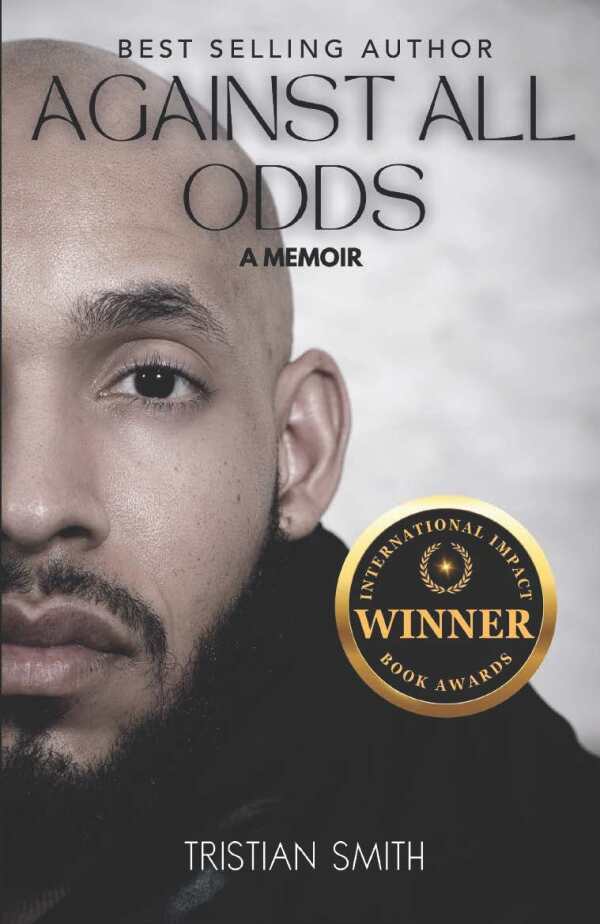Against All Odds
Arguing for systemic reform in the name of childhood stability and belonging, Against All Odds couches a social science argument in the context of a personal tale of resilience.
Tristian Smith’s sobering memoir Against All Odds is about progressing from instability toward resilience and hope.
Opening with statistics related to the outcomes of those who grew up in foster care, this personal story is situated within a broader social crisis. Low high school graduation rates and instances of homelessness are attributed to the paltry quality of care that some children receive. Smith himself entered the system when he was seven and subsequently lived in twenty-five foster homes, attending thirteen schools in total. Each move interrupted his friendships, education, and burgeoning sense of personal identity. But he also formed connections with a few supportive foster parents and with peers who gave him a sense of belonging, which are used to argue that even brief experiences of care can improve foster children’s trajectories.
Indeed, in a chapter that reads like an ode, the book pays careful tribute to those caretakers who transformed his daily routines into anchors of belonging. Later, Smith jointed the military. Those experiences are credited with further instilling his senses of discipline, teamwork, adaptability, and camaraderie—in sharp contrast to what he felt amid the difficulties of his childhood.
Much space is devoted to exploring the transactional nature of foster care, with Smith indicting foster parents who were more concerned with receiving government checks than they were with nurturing children; emotional and physical abuse is also tied to such priorities. The book strays from Smith’s personal accounts to advocate for recruiting stronger foster families and for expanding therapeutic training while investing in education, housing, and mental health services. Among its bevy of recommendations are kinship placements to preserve cultural ties, mentorships to guide children’s transitions, and trauma-informed support to help children process their losses.
In addition to raising awareness about these issues and about how poverty and racial inequities impact who enters foster care, the book issues direct addresses to fellow foster children—reminding them of their worth, encouraging them to pursue their dreams, and framing resilience as a defining trait. In such moments, it strays farther from memoir territory, though, seeking to be motivational. Smith’s story becomes more of a testimonial in service of reform themes than it is the book’s true center. Indeed, the book concludes not with personal thoughts, but with an appeal for systemic change, urging collaboration among agencies, schools, and communities.
A earnest memoir–cum–social science treatise, Against All Odds advocates for reforming the foster care system.
Reviewed by
pine breaks
Disclosure: This article is not an endorsement, but a review. The publisher of this book provided free copies of the book and paid a small fee to have their book reviewed by a professional reviewer. Foreword Reviews and Clarion Reviews make no guarantee that the publisher will receive a positive review. Foreword Magazine, Inc. is disclosing this in accordance with the Federal Trade Commission’s 16 CFR, Part 255.

